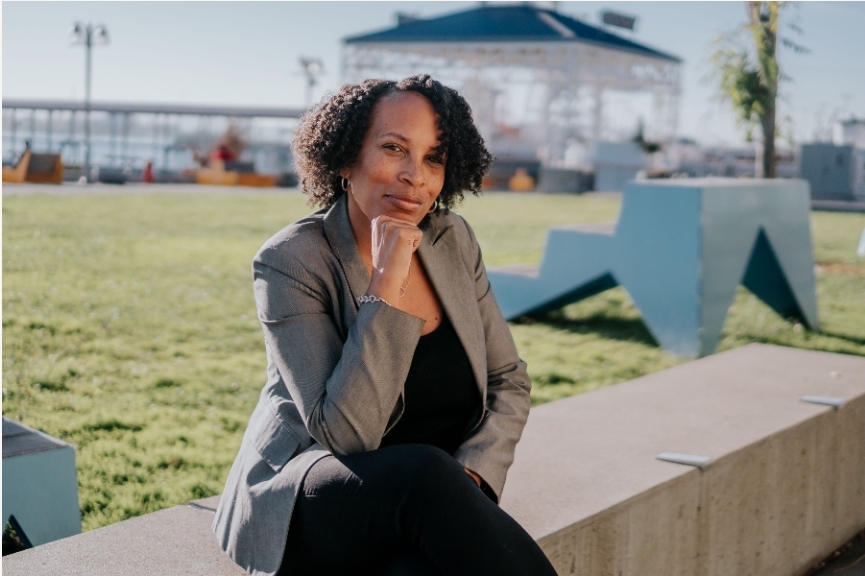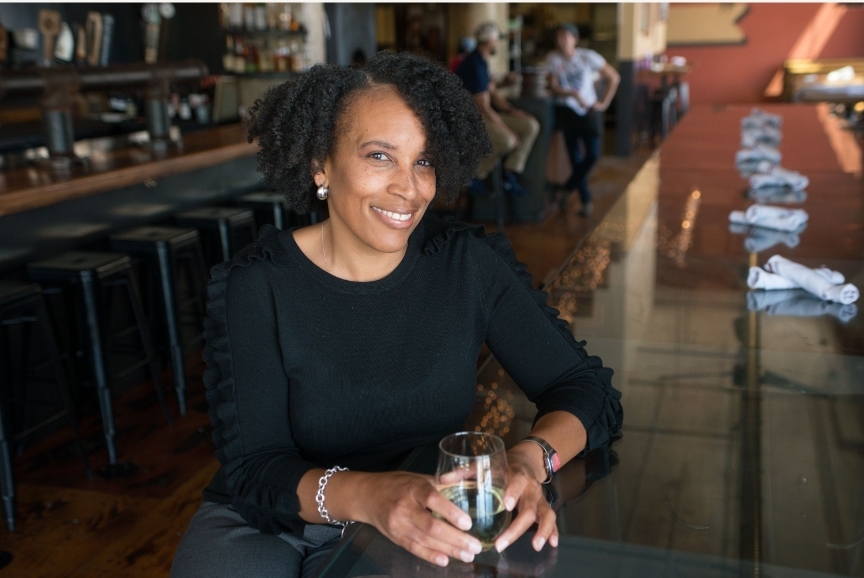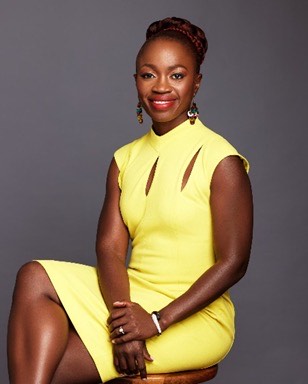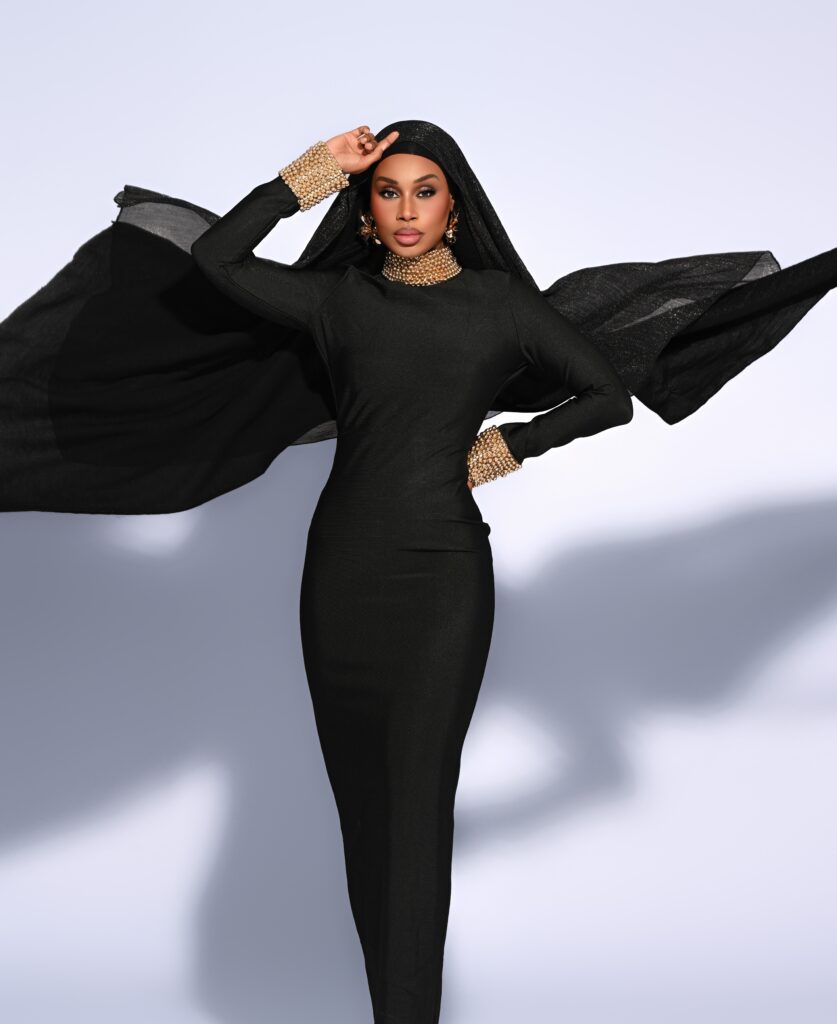When one thinks of food, one would naturally assume the intended purpose is to nourish the body. Symbolically it’s the fuel that’s needed to keep the engine going. However, food also serves to connect the heart and soul to the diaspora of cultural experiences and customs. As we typically age, there’s an appreciation of wisdom that manifests when one can indeed partake in unlocking the multitude of love languages that life offers. Such as changing our relationship with food and genuinely allowing every bite and every sip that we take leads us to new pathways of transcending adventures. Sheree Williams is the founder and executive director of The Global Food and Drink Initiative (GFDI), a multimedia non-profit that aims to “share, connect and preserve the history and culture of the African diaspora” by encouraging members of the communities global to have pride in who they are, their language, cuisine traditions, and heritage. The magnitude of Sheree’s magic does not stop there. Sheree is the publisher and editor of the world’s only print and digital magazine, “Cuisine Noir Magazine,” The magazine has pioneered meaningful conversations highlighting Black Chefs, Tastemakers, Winemakers, and Travel Influencers. FEMI Magazine is proud to introduce its readers to a fantastic change agent who works for the culture and makes impactful differences in communities. Welcome to FEMI Magazine Sheree!
Why is it important to connect to the Diaspora – especially for the African American Community?
I feel that as a people, we are amazing and wonderful with so much history between us. I have always loved learning about people and different cultures, and as I began to really do the work of connecting the African Diaspora through food, drink, and travel, it revealed how much we all have in common when it comes to cooking, cultural traditions, etc. and also all of the accomplishments that we as Black people have made to this world that have been historically erased or hidden and together, we’re bringing this light forward to shine.
What inspired you to create Cuisine Noir Magazine?
So Cuisine Noir Magazine was actually founded by Richard Pannell, a chef from Sacramento. While in LA, he didn’t see Black chefs being featured in mainstream publications and decided to do something about it. In 2007, we connected through a previous connection and when he shared the magazine’s vision, I knew I was in the process of becoming a writer.
We launched the publication online in 2007. This was a time when the Neelys were popping on the scene, Rock Harper one Hell’s Kitchen (2008) and Aaron McCargo, Jr. won Food Network Star. No one was focused on these types of editorial stories as a full-time editorial beat.
Richard went on to pursue other interests, and I became the owner of the magazine in 2009 and rebranded it to include wine at the time (now expanded to drink to cover beer, water, etc.) and travel because all three are just intertwined. Since then, we have owned this niche and have pioneered conversations that have only in the last five years started to come more every day, but they have been every day for us going on 12 years as of September 1.
The late Toni Morrison said, “If there’s a book that you want to read, but it hasn’t been written yet, then you must write it.” We knew years ago that our rich and powerful history in food was not being written about, so we set out to do that.
What future plans do you have to really showcase the food, wine, and travel of the Diaspora?
We launched our media non-profit, The Global Food and Drink Initiative, last August to expand our reach, resources, and opportunities to showcase food, drink, and travel of the Diaspora past the pages of Cuisine Noir.
In the future, you’ll continue to see more feature stories through various media platforms as well as programs that will bring the individuals together in various industries, etc., to share experiences, challenges, opportunities, and more.
We’re excited as we hear of someone doing something amazing every day whether here in the U.S., Africa, or Canada, and we’re positioning ourselves to be the leader in showcasing their work in food, drink, and travel.
Who would you like to connect and collaborate with to really get the message across?
We have been fortunate to build a robust global network of chefs, business owners, winemakers, etc. I feel future collaborations would start here and then grow to include other Black-owned media outlets and organizations focused on food globally.

What is your readership demographic and do you plan on reaching our children to educate them as well?
It’s funny because, before the pandemic, our audience was primarily females who are Baby Boomers and Generation X. Since the pandemic, our readership demographics are now leaning more toward a young demo of Millennials and Generation X with a little Generation Z. We’re currently conducting a reader engagement survey to be able to have the complete picture of who our reader is now with so much happening, so that is exciting.
Children are very important in all of this. There are very few stories, and I mean very few stories where the chef or caterer’s early memories don’t involve being in the kitchen with mom or grandma. I say this to say that time teaching and learning is so important at a young age. Some moan and groan, while others find the kitchen to be their new playground, but when those seeds are planted, trust me, they will grow.
It is especially important for passing down food traditions. It has to start with the children and we’re seeing more and more people place even more importance on passing down food traditions in the kitchen and the pride that comes along with it. I have led cooking classes for kids and loved it. Our board is exploring what this could look like as a program for our non-profit, so more to come!
Explain the beauty of the Diaspora through food.
The beauty is the connections, learning the history of where food comes, and getting to know who we are as Black people. We did a thing (as they say) back in the day when it came to planting and harvesting crops and that history is being told through culinary historians such as Michael Twitty and Toni Tipton Martin.
We learn about each other and that is the connection. I love talking to brothers and sisters from Africa or the U.K. because at times, it is like we were raised in the same community based on how we as Black people move around food. It is truly amazing and as they say, food is such a great connector that when you break bread together, chances are you find out how much you’re alike rather than different.
It is a great way to decrease the divide that was intentionally created between us as Black people globally.
Explain the rise in winemakers within the African American Community and the need for support.
We have been covering Black in the wine industry since 2009, which goes back to covering the very first wine label by the Robin and Andrea McBride sisters, eco. love Wines.
In 2010, we were the first to create a list of Black-owned wineries around the world. Many have created their own since, but we were the first.
Having been in this space and covering it for many years, I would say the rise has been steady as more of us are exposed to wine itself and to the industry. The opportunity for experiences has opened out more doors than ever before and many are also seeing Black people who look like them doing it which is very inspiring. Just as Mac McDonald of Vision Cellars mentored Andre Mack of Maison Noir as he was getting started, we now have a community of Black sommeliers, winemakers, vineyard owners, and managers, etc., for up-and-coming wine professionals to discover and thrive in the industry.
The need for support will always continue to be there even with the pandemic shining a light on Black-owned businesses, including Black winemakers. Many still face issues in terms of funding, capacity building, distribution, etc., as it is still a white male-dominated industry, but being intentional with your dollars and support will continue to help them break through those barriers.
Since the Pandemic, travel has been very different. What way are you now encouraging travel, safety while traveling, etc…?
We have tried to focus on many trips you can do in a car, RV, etc. Many are still hesitant to get on a plane and with another lockdown possibly looking for many states and countries, it is important to give safe options for getting out of the house and away if possible.
Another thing we are doing is when we feature a destination, we feature what they are going through and encourage visiting when you feel it is right for you. We’re here to provide the information and help build travel bucket lists, so that is a message that we include as well.
For those of us who love to travel, it is very hard not to, but we also want to stay healthy and safe, so it has been a great time to explore our own outdoor backyards, or a nice road trip can cure any travel blues. We really encourage this and it can be a great time with family and a time to discover the beauty of nature while getting away from all the noise of the world.
Stay Connected to Sheree Williams on all of her available platforms!
Facebook – https://www.facebook.com/groups/cuisinenoirmag
Twitter – https://twitter.com/cuisinenoirmag
Instagram – https://www.instagram.com/cuisinenoir/
Facebook – https://www.facebook.com/globalforgood
Follow Us On Social Media!




